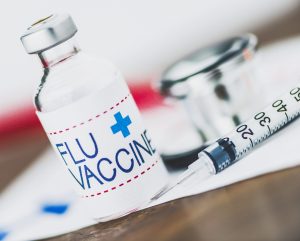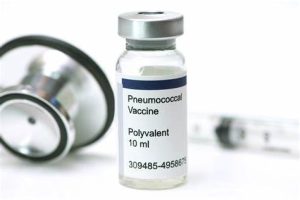Autumn Vaccinations
Covid Vaccination
As we move into autumn, protection from any earlier COVID-19 vaccination you may have had will be starting to wane. For those who are more likely to become seriously ill from COVID-19, the NHS offers a free vaccine in the autumn, previously known as the ‘Autumn Booster’.
Eligible groups this autumn
- adults aged 65 years and over
- residents in a care home for older adults
- individuals aged 6 months to 64 years in a clinical risk group (as defined in tables 3 or 4 in the COVID-19 chapter of the Green Book)
- frontline NHS and social care workers, and those working in care homes for older people
The eligibility is the same across the 4 nations of the UK (England, Scotland, Wales and Northern Ireland).
The vaccine should usually be offered no earlier than around 6 months after the last vaccine dose. If you are eligible, you can get protection from an autumn COVID-19 vaccination even if you have not taken up a COVID-19 vaccine offer in the past.
Further information on eligibilities can be found here – Who’s eligible for the 2024 COVID-19 vaccine, or ‘Autumn Booster’? – UK Health Security Agency (blog.gov.uk)
The Covid-19 Vaccination Programme is due to commence on 1st October 2024, however, at the time of writing this, we have no delivery dates and therefore will not begin to invite patients until we can confirm delivery dates with the NHS supply team.

Flu Vaccination
Flu vaccination remains a critically important public health intervention to reduce morbidity and mortality in those most at risk including older people, pregnant women and those in clinical risk groups. It helps the health and social care system manage winter pressures by helping to reduce demand for GP consultations and likelihood of hospitalisation.
Eligibility
Eligibility for flu vaccination is based on the advice and recommendations of the Joint Committee on Vaccination and Immunisation (JCVI). This includes a vaccination programme for children based on JCVI’s 2012 recommendation, using live attenuated influenza vaccine (LAIV) which provides individual protection to the child and reduces transmission in the wider population.
The following groups are to be offered flu vaccination in line with the announced and authorised cohorts (see timings section):
From 1 September 2024:
- pregnant women
- all children aged 2 or 3 years on 31 August 2024
- primary school aged children (from Reception to Year 6)
- secondary school aged children (from Year 7 to Year 11)
- all children in clinical risk groups aged from 6 months to less than 18 years
From October 2024, exact start date to be confirmed by NHS England in due course:
- those aged 65 years and over
- those aged 18 years to under 65 years in clinical risk groups (as defined by the Green Book, Influenza Chapter 19)
- those in long-stay residential care homes
- carers in receipt of carer’s allowance, or those who are the main carer of an elderly or disabled person
- close contacts of immunocompromised individuals
- frontline workers in a social care setting without an employer led occupational health scheme including those working for a registered residential care or nursing home, registered domiciliary care providers, voluntary managed hospice providers and those that are employed by those who receive direct payments (personal budgets) or Personal Health budgets, such as Personal Assistants

Pneumococcal vaccine
The pneumococcal vaccine helps protect against serious illnesses like pneumonia and meningitis. It’s recommended for people at higher risk of these illnesses, such as babies and adults aged 65 and over.
The Pneumonia Vaccine for most patients over the age of 65 is a one-off vaccine and we will offer this alongside the flu and covid vaccines.
Autumn Vaccinations Read More »
